 Sámegillii
Sámegillii  På norsk
På norsk
Articles about Sami school history
Part 23 - printed in Ávvir 14.01.2012
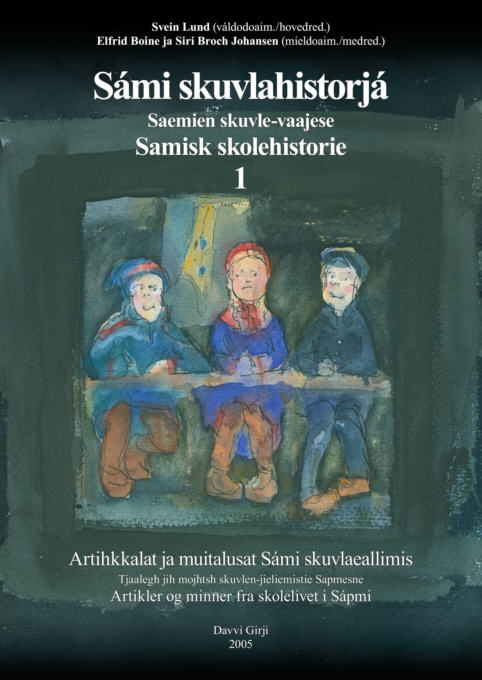 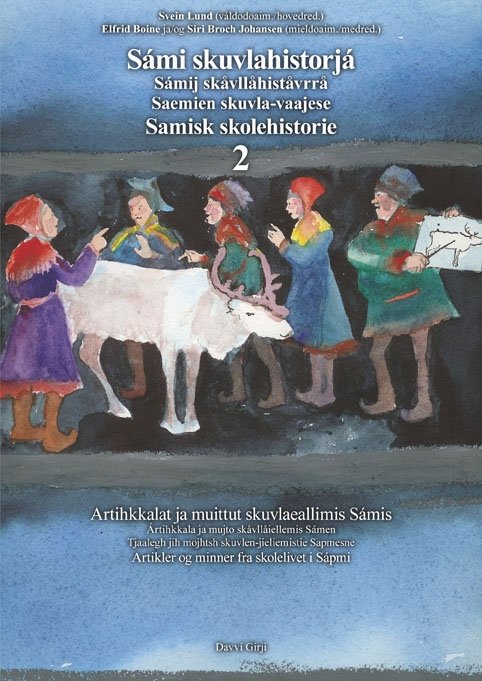 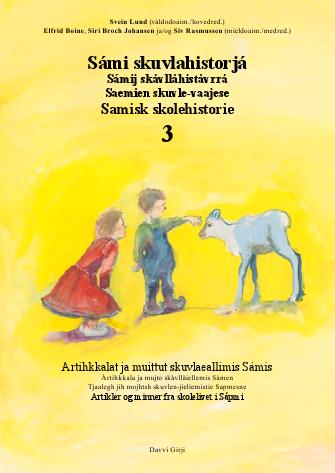 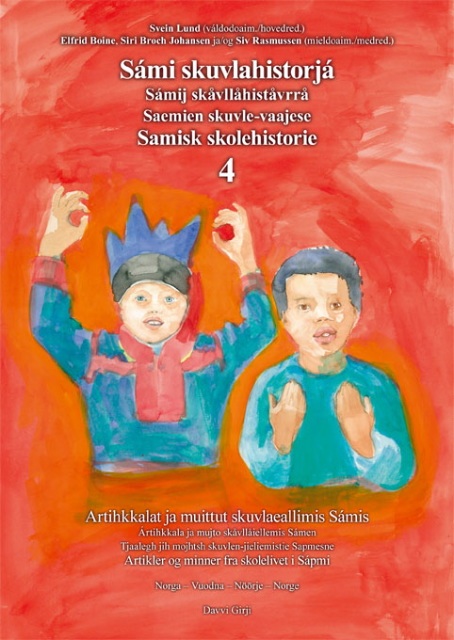 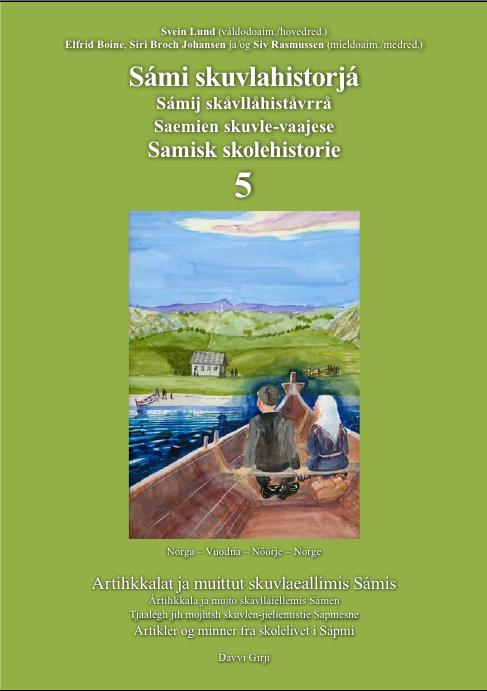
Do you know Sami school history?Sámi skuvlahistorjá / Samisk skolehistorie (Sami School History) is a series of books published by the publishing house Davvi Girji. In about 200 articles in 5 volumes there is told about the experiences of Sami children in Norwegian schools, and about the changes in the educational politics of the Norwegian authorities towards the Sami population. The books are published with parallell text in Sami and Norwegian language.In this web site some of the articles of the first book are also published in English. It would be too much to translate it all, so to make this history available to a greater public, we are translating a series of newspaper articles, which sorted by topics make a summary of stories in the books. So far there are 28 articles published in Sami language by the Sami newspapers Min Áigi and Ávvir. They are also published here in Norwegian and the English version will be published gradually as they are translated. These articles are edited by the main editor, Svein Lund. Besides him the editing board of the book series consist of Elfrid Boine, Siri Broch Johansen and Siv Rasmussen. |
In the1980's there were pupils and parents in the Marka-Sami villages in Skånland and Evenes who wished for an offer of Sami education. But it would turn out to be easier said than done to make it happen. After a long struggle with the bureaucracy in 1986 two couples of parents wrote a letter addressed directly to the Director of schools. This letter says a lot about how parents have struggled for their children to be offered Sami language as a subject in school and how tough it can be. But it also shows the use to keep going, because the teaching started the week after the letter was sent.
Following is an extract from the letter.
This is a personal letter
from the parents of two boys
to the two boys' Director of schools.
It is because we are discouraged - and downhearted
The letter is not as much about achieving something
as telling how it has felt to be us
and how it has been for our children
to be the ones who actively started the case
when they asked their parents about getting Sami language as a subject in school
and later the have passively seen how it has turned out.
If you think we seem bitter
overlook it and remember
that we would like to see that our children
later will avoid to feel bitterness and discouragement.
...
Three years passed like that
the boys' first three years in school.
Last year they came to their parents in an honest search of information:
- Is it in university one can learn Sami?
By then we will be old or maybe we do not study there.
And the boys' reaction to the right to Sami language as a subject:
But, then we could just start right away.
That was last year.
What do parents do then?
Actually parents or boys should not have to do anything at all.
The school should come with an offer.
One does not do anything to get lessons in Norwegian language as a subject
but in this case we are not talking about Norwegian!
And that makes the case different!
A week before the start of school this year
the parents in Skånland called their school administration.
Where are things at now? The school was starting monday.
Entrant Director of schools, pleasant and positive, had to check first.
Actually we understood that as well.
We wondered. Is the case maybe waiting at the Director of schools' desk.
We felt: No one knows anything they can tell us.
Nobody seem to be the one responsible.
(SSH5-addition)
One week later lessons in Sami language as a subject were started.
We were mothers and fathers from four families. We wanted our children to learn Sami, and therefore we had come together to write a letter to the Director of schools in Nordreisa. The older children had already attended school for a couple of years, but the greater part of them was stil inn kindergarten. We sent the letter the 6th of September 1990. ... We wrote to the municipality asking wether any of the schools in Nordreisa offered education in Sami, and what rights the children had to be taught Sami language as a subject and to have Sami as a general language of instruction. – It is better to ask than to tell, Helfrid meant, and three weeks later we got our reply. We read it in such a way that it discouraged us to start with.
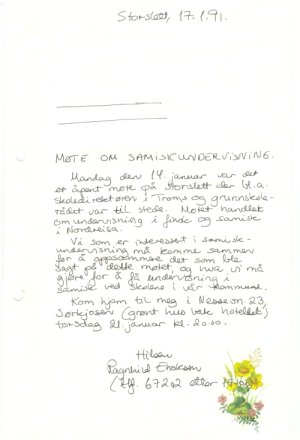 |
After the meeting with the Director of schools Ragnhild Enoksen invited other parents to stand together to get teaching in Sami in Nordreisa. |
– As of today, none of the schools in Nordreisa are offering Sami language as a subject or language of instruction, the pedagogical consultant at the School director's office wrote, and continued to quote the article 7 of the Law for primary and secondary school, before she clinched that Nordreisa municipality never made any resolution to become a Sami district, hence the municipality had no obligations to offer native language education in Sami. She also answered that the school could offer lessons in Sami as a foreign language, as an optional course, if there was competent teachers for the subject.
We moped a couple of weeks over the answer, before Helfrid brought up that we should not take it so bad, because the letter also said that we could apply to the school authorities for lessons in Sami as a second language for the children, and the school or the Director of schools would decide if the second language would be introduced from the first or second class. We just needed to clarify that part better. ...
I can remember that she came downcast to me after a conversation with the pedagogical consultant. The schools in Nordreisa did neither have enough pupils nor teachers to offer Sami as a subject, but we could try to apply... (SSH-2)
In the first half of the 1990's two couples in Hasvik had presented the wish of lessons in Sami language as a subject for their children, who at the time were attending the lower primary school. Still these pupils had to complete primary school without having one single lesson in Sami language as a subject.
There had been attempts to offer Sami language as a subject in two periods, in the middle of the 1990's and 2003–2005, with two different teachers. Both had Sami as their mother tongue, but no formal education to teach the Sami language. Both of them moved away from the municipality quite shortly after the lessons in Sami language as a subject had started. ... It can be difficult to get teachers of Sami language to come to municipalities such as Hasvik. But the effort of the municipality to be able to get hold of a teacher has not been impressive either. Some times they have tried to advertise for a teacher of Sami language in about 20% position. Since no one is able to make a living of that, obviously nobody applied. I was told that teachers at one of the schools had opposed that there had not been done more to get a teacher of Sami language. They had said they thought the school could be legally responsible for not having offered education in the Sami language when the parents demanded so. (SSH3)
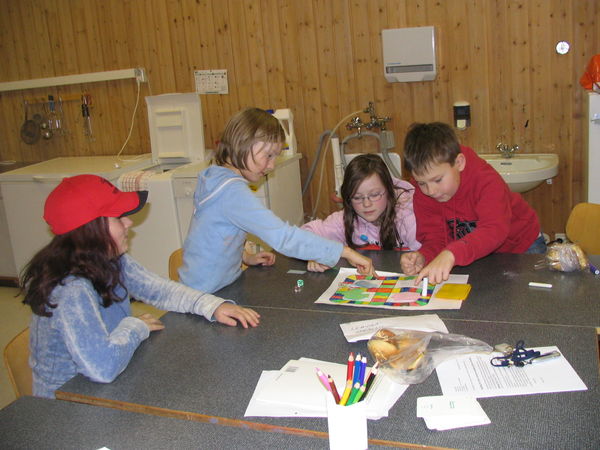 |
The Sami pupils in Breivikbotn are playing «leavgaspeallu». From the left Susanne Hansen, Inger Lise Pedersen, Benedikte Gamst and Thomas Hansen. (Photo: Svein Lund) |
At the end of the 1980's the parents in Spansdalen fully started the fight for a better offer for the Sami pupils. At first lessons in Sami as a second language was started. But the parents were not satisfied with that. They wished to have a separate school in Spansdalen, either as a local village school there or to get the Sami school in Troms to establish there. This had been in a provisional place in Målselv until then, but the parents were planning a new building. Both the Sami parents and Lavangen municipality got involved in trying to make the Sami school move to Spansdalen or Fossbakken. But it was still decided to build the Sami school in Målselv, and none of the parents wished to send their children to boarding school. The parents then primarily wished for a village school in Spansdalen. And if that was not possible, they wished to separate own classes at the central school, where the Sami pupils would be taught Sami language as a subject and Sami language would be used as the language of instruction.
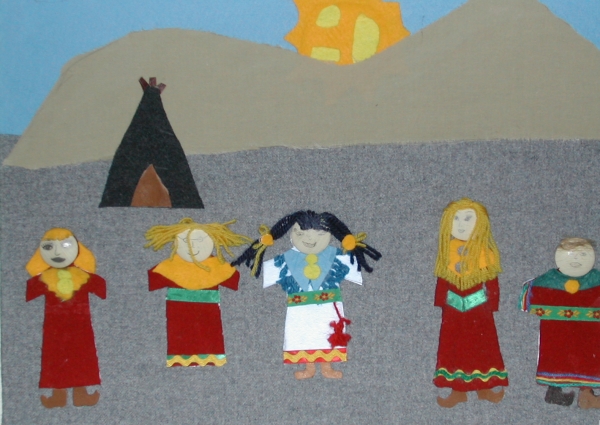 |
Picture made by the pupils at Lavangen Sami school. (Photo: Svein Lund) |
In 1992 parents of children in 1.–4. class applied for the children to be offered Sami language as a subject and Sami language as the general language of instruction. The Director of schools in the municipality, Johan Lyngstad, was positive to the application and did his utmost to make it possible. The municipal education committee agreed with the Director of schools' proposal. The executive committee on the contrary did not, and decided to turn the application down completely, arguing that Lavangen was not part of the province for Sami language, and that the pupils here thus did not have any right to education in Sami. In the local council the majority found this too excessive, and passed a compromise instead: «The local council take cognizance of the municipal education committee's decision to start a pilot project offering Sami language as a subject. It must still be defined precisely that there are no resources marked off in the longterm municipal budget to continue this education after the pilot project period has ended.» The parents could not accept this, and sent a furious letter to the local council, which they ended:
«If the local council does not change it's decision, we as parents will bring into effect the following:
– Refuse to send the children to school from the start of school with the consequences this will lead to
– direct a demand of a separate school/school district
– take legal action»
The local council did not change their decision, but they got a strong warning that they had to stop speaking about pilot projects. The parents would never accept anything less than a permanent offer. The same autumn the first class using Sami as the general language of instruction was started. These are four examples from municipalities where parents in the end managed to get education in Sami language started. While working with Sami School History we have heard many similar stories. In addition there are the municipalities where the education in Sami language never has been started, despite of wishes from pupils and parents. From what we know there has still not been conducted any case before the court where parents have denounced the municipality of violation of the Law of teaching when pupils have not been granted the rights they are entitled to.
Here you find all the articles in the series:
28.09.2007 Why Sami school history?
05.10.2007 Boundless ignorance
12.10.2007 Southerner-teachers encounter the Sami language
19.10.2007 The start of Sami beginner instruction
26.10.2007 The start of education in reindeer-herding
02.11.2007 From Sami to Norwegian vocational training
16.11.2007 Struggle for Sami gymnasium
28.11.2007 School experiences of Norwegian speaking Samis
14.12.2007 Resistence against Sami language and culture
25.01.2008 A strange world
23.05.2009 On Sami teachers
30.05.2009 Life in boarding school
06.06.2009 Sami pupils were bullied
13.06.2009 Sami content in the teaching
20.06.2009 Pupil as interpreter
04.07.2009 How the children quit speaking Sami
10.09.2010 God does not understand Sami
08.10.2010 The point of view of the Norwegianizers
13.10.2010 Men of the church defending the Sami language
02.12.2010 Sami teachers in old times
09.12.2010 Boarding school life in old times
18.12.2010 Sami pupils in special schools
14.01.2012 The parents' struggle for Sami education
21.01.2012 Reluctance and absence
28.01.2012 The school during the war
04.02.2012 Reconstruction and barrack schools
11.02.2012 Curriculums - for Norwegianization and for Sami school
18.02.2012 The great struggle of the curriculum
Sami school history 1
Sami school history 2
Sami school history 3
Sami school history 4
Sami school history 5
Sami school history - main page